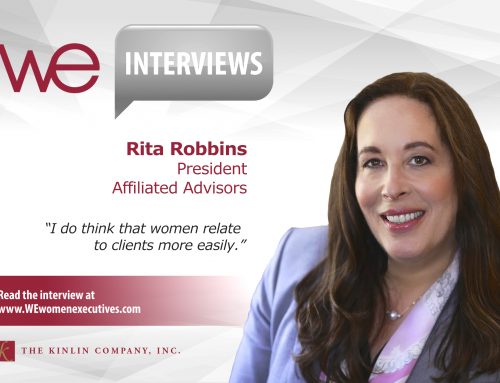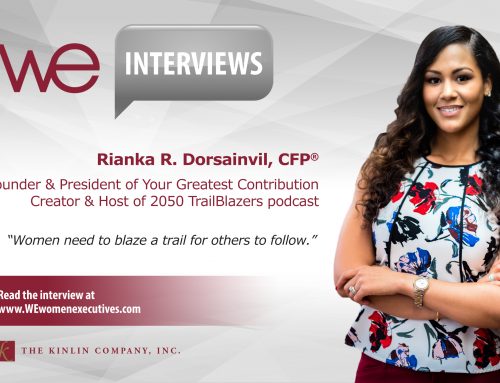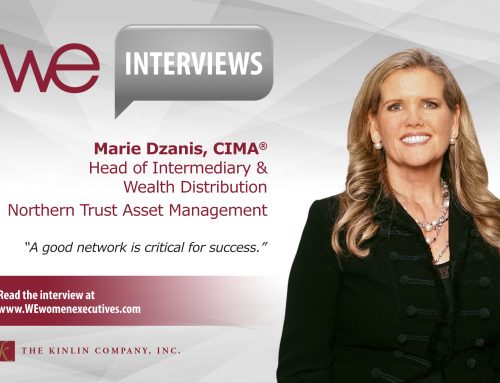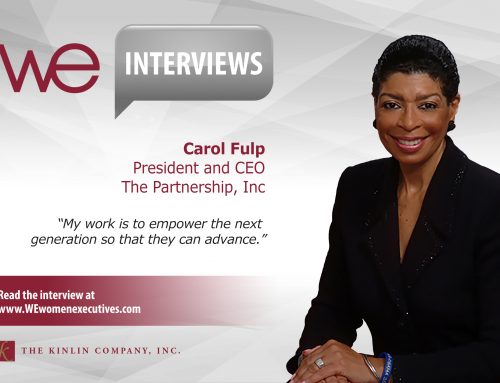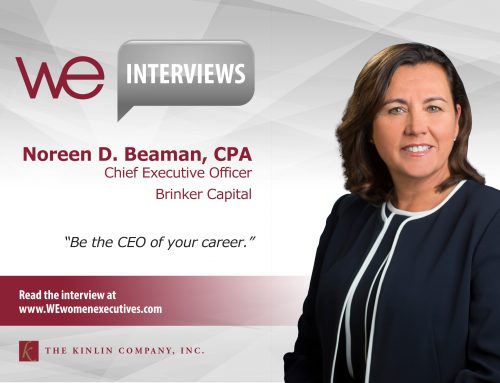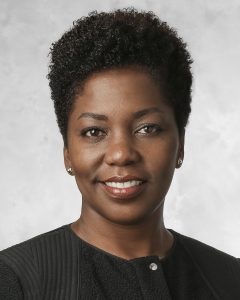 Melody Rollins
Melody Rollins
Partner & Head,
Client Service & Business Development
Brightwood Capital Advisors
Melody Rollins is a partner and Head of Client Service and Business Development for Brightwood Capital Advisors, a middle market direct lending platform with a staff of 52 and approximately $3 billion in assets distributed across four funds. In her role, Rollins oversees all of Brightwood’s existing and prospective client and consultant relationships and leads the development, marketing and distribution of the firm’s products.
Before joining Brightwood, Rollins spent 15 years at PIMCO, most recently as Head of U.S. Institutional Client Management, and prior to that worked in debt capital markets and liability management at Salomon Brothers and Deutsche Bank.
I recently sat down with Rollins to talk about her path to success in the finance sector and the lessons she’s learned along the way.
Don’t take it personally
I began by asking Rollins about the elephant in the room: the male dominance that persists in the finance sector. Have you run up against the issue, I inquired, and if so, how have you handled it?
“That’s a loaded question. Of course finance is a very male-dominated field, both in numbers and in culture. The alpha male culture dominates the industry, and I say that because there are a lot of Type-A personalities in this field.
“When I first started out, I was on Wall Street, on the sales side at Salomon Brothers. I was nervous, because no one in my family had really heard of Wall Street. My parents were disappointed that I was not going into a public sector job, so there was tension. I was excited, but also really nervous about being the only African American. As it turns out, it was all about being the only woman — that was by far the biggest challenge, and this was in ’92, before political correctness. I experienced a lot of what would now be characterized as blatant sexual harassment.
“It was pretty bad, but I wasn’t offended by it. I didn’t take any of it personally, although it did make it hard for me to see a future for myself, because everyone around me was a man. The only woman was actually my boss on the capital market desk, Jessica Palmer, an amazing trailblazer in the industry. She was nearing her retirement and her big act in the year before she left was to change the policy so that women could wear pantsuits, because prior to that we only could wear skirts.
“Overcoming the harassment meant identifying a vision for myself in the future. I continued in the industry, but had some doubts, and after six years ended up going back to school, which was a little late in that I had already been promoted past the associate level. But I decided to go back because I was feeling insecure about what my long-term path looked like, especially in the face of downsizing or a crisis. I knew that in times of trouble, they would find any reason to let folks go. So I went back to school, transitioned to the buy side, and joined PIMCO. Over the 15 years that I was there, I did a lot of work toward advancing women as leaders, but I didn’t have a lot of role models.”
Fascinated by this admission, I interrupted Rollins. How did you make your way in a hostile environment without a mentor or role models, I asked.
“I struggled through it. I’m from North California, so everything in New York was foreign to me. But I let the bad things roll off my shoulders, didn’t get discouraged, and asked for advice, mostly from men that I knew from a school or organizational affiliation. A couple of male managing directors also gave me advice, including one who told me to stop changing my hairstyle so much, which was actually very good advice. And I worked hard.”
Keep learning
Although Rollins spoke of seeking advice from colleagues, this struck me as different from a mentoring situation. Have you ever had a role model, mentor or sponsor who you feel really contributed to your success, I inquired.
“No, which is rare, I think, and unfortunate. I’ve approached the issue in a couple of different ways. One thing I did was to emulate the behavior of those I looked up to, whether or not I knew them personally. For example, I’ve studied how a woman carries herself, portrays herself in meetings, or gets the job done. I’ve asked myself, ‘How did she do it? What did she do? What type of body language is she using? How does she dress?’ I’ve found that women in our industry who dress well get more respect, so I told myself, ‘Okay, from now on, I’m spending this much money on my wardrobe,’ and it made a difference. The visual is very important for women in our industry, whereas I think men are probably treated equally at work whatever they’re wearing.
“I’ve also been fortunate in that I’ve worked with men who have been good at offering me feedback and giving me opportunities. I stop short of saying they sponsored me, because even though I feel they did, they don’t see it that way. I’m someone who works hard and takes feedback well, and as a result I’ve learned a lot and been promoted based on my performance.”
A strong work ethic is clearly very much a part of Rollins’ fabric. Do you think that willingness to work so hard played a big role in the progress of your career, I asked?
“Yes, but I don’t recommend it. In my early days at PIMCO, I worked every weekend because I wanted to do my job better. I was interested and that’s the type of person I am; I was raised that way. My dad was in the military, and he’s pretty intense. His attitude was, ‘There’s always more that you can do.’ To him, an A- is not success, so that became my attitude; I always did my homework plus some. I’m not competitive with other people, but I am with myself.”
Find ways to give back
In keeping with the theme of always doing more, I couldn’t help but ask what drives Rollins’ commitment to so many extracurricular initiatives: service on the boards of the New York Academy of Medicine, Coro New York, and Neighborhood Defender’s Service of Harlem as well as active involvement with Sponsors for Educational Opportunity (SEO), the Toigo Foundation, the Council of Urban Professionals, and Future Leaders Institute Charter School. What drives you to volunteer with these organizations when you already have such a full plate, I inquired.
“Again, I’d say that dedication comes from my upbringing. My mother was always involved with the community and doing for others who had less, and I think those types of activities are really important for perspective. It’s easy to live in our bubble and feel unhappy about what’s happening or what’s going on with us personally or how hard it is now, but relative to the rest of the world, we’re privileged and blessed. My mom was a Special Education teacher and my dad was in the military, so we didn’t have a lot of money. Back then, teachers always bought supplies for their classrooms, so my mother would get $800 a month, and she’d split it up between groceries, gas, and supplies for the kids. We’d do it as a family – she’d say, ‘Well, I really want to buy this $100 worth of things, so that means we won’t have money for this trip with the Girl Scouts.’ My mother would always vote for the kids. I always felt good giving back – we didn’t know we were the poorest family. When you’re doing something for someone else, you don’t realize your own position. In a position of privilege, I think it’s important to find ways to make life better for others.”
Be yourself
As our time together began to wind down, I couldn’t resist asking Rollins one of my favorite questions. Is there anything you know now that you wish you had known at the outset of your career?
“A million things – work smart, not hard. Look up and talk to people around you. Share your thoughts and your insights, especially when you’re just getting started. Be confident in your voice and share what you’re thinking in a constructive way.”
Rollins’ comments offered the perfect segue into my final question: what are the main pieces of advice you would share with other women?
• Be yourself. It’s hard to be someone else, so even when you find someone you want to emulate or when you’re being given advice by somebody that’s important in your life or in your career, translate that advice to your own situation, and realize that sometimes it won’t fit you at all. Play to your strengths. Set yourself up in roles or in positions where you can be the best. Ask yourself, ‘What are my natural strengths? What are my natural interests?’
• Pursue your own passions. If it’s not your passion, then don’t do it just because you think it’s expected. You’re never going to be at your best if you’re doing something that is not in line with your interests.
• Be a good role model to others. Be generous to those around you and be good to the people you work with, lift them up.
![]()

